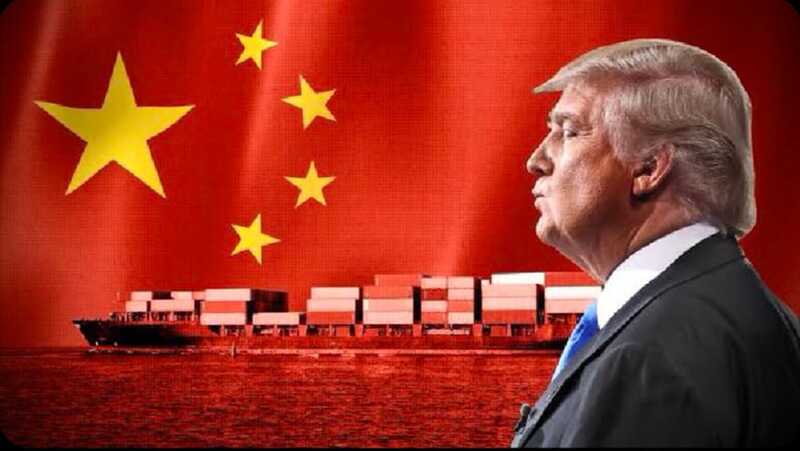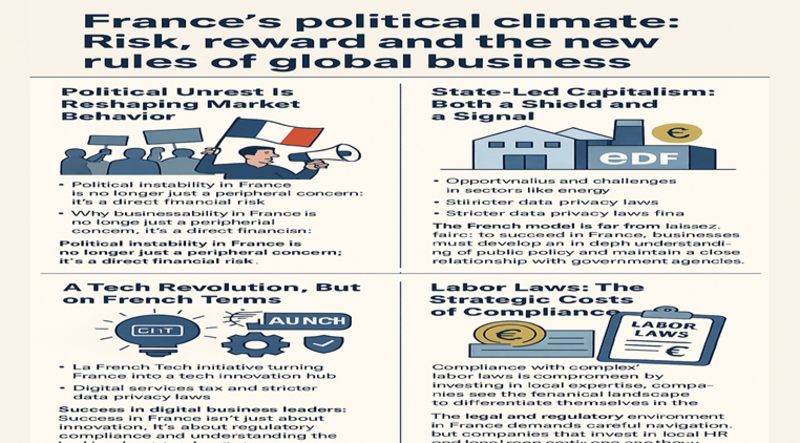Kenya Moves To Tax Ai Platforms Like Open Ai: Navigating...
Africa
Technology
As Kenya ramps up efforts to expand its tax base and address a strained economy, the government is now eyeing artificial intelligence (AI) platforms like ChatGPT for potential taxation. This proposal, echoing global trends, raises significant questions about digital access, innovation, and its impact on Kenya’s education system and burgeoning tech ecosystem.
Kenya’s Digital Economy: A Growing Hub
Kenya’s digital economy has experienced remarkable growth in recent years, positioning the country as an innovation leader in Africa. From mobile money solutions to tech-driven startups, young Kenyans have embraced AI platforms to enhance learning, business operations, and productivity.
However, the government faces mounting fiscal challenges, including a heavy public debt burden, inflation, and reduced donor funding. In response, the treasury is reportedly exploring new tax measures targeting foreign digital services, which are widely used across universities, businesses, and public institutions in Kenya.
A Global Context for Digital Taxation
Kenya’s proposed AI tax would not be unprecedented, as other nations have already adopted similar measures. For example:
Kenya’s Digital Economy: A Growing Hub
Kenya’s digital economy has experienced remarkable growth in recent years, positioning the country as an innovation leader in Africa. From mobile money solutions to tech-driven startups, young Kenyans have embraced AI platforms to enhance learning, business operations, and productivity.
However, the government faces mounting fiscal challenges, including a heavy public debt burden, inflation, and reduced donor funding. In response, the treasury is reportedly exploring new tax measures targeting foreign digital services, which are widely used across universities, businesses, and public institutions in Kenya.
A Global Context for Digital Taxation
Kenya’s proposed AI tax would not be unprecedented, as other nations have already adopted similar measures. For example:
- India enforces an 18% Goods and Services Tax (GST) on paid AI tools, including ChatGPT subscriptions.
- Turkey introduced a 20% Value Added Tax (VAT) on AI platforms in late 2024.
- South Africa’s Competition Commission proposed a 5–10% digital levy on platforms like ChatGPT, Google, and Meta.
- Italy imposed a £15 million fine on OpenAI in December 2024 over data privacy violations, reflecting tighter regulatory oversight of AI tools.
These measures serve as a backdrop for Kenya’s deliberations, highlighting the global drive to regulate and tax digital platforms.
The Integration of AI in Kenya
AI tools have become deeply embedded in Kenya’s education, business, and public service sectors.
- Education: University students use AI for research, essay writing, exam preparation, and coding assistance.
- Small businesses: Entrepreneurs rely on AI for content creation, marketing automation, and customer engagement.
- Freelancers and gig workers: Many utilize AI for translation, copywriting, and productivity management.
- Government and NGOs: Institutions are exploring AI for data analysis, service delivery, and citizen engagement.
As AI continues to play an integral role in Kenya’s economic and social landscape, the government views taxation as both a revenue opportunity and a means to regulate the growing influence of AI.
Potential Impacts of an AI Tax
If implemented without careful planning, the proposed tax could have significant repercussions for students, young professionals, and tech startups in Kenya:
- Limited access for students and low-income users: Increased subscription costs may make AI tools unaffordable for students in public institutions, potentially reducing educational resources.
- Challenges for startups and freelancers: Higher costs for AI services could hinder small businesses and freelancers who depend on AI for innovation and efficiency.
- Risk to Kenya’s tech ecosystem: Curtailing access to AI tools might slow the country’s progress in digital education and youth employment, putting its tech ecosystem at a disadvantage in the global landscape.
As AI becomes increasingly pivotal in education and work environments worldwide, restricting access could hamper Kenya’s efforts to advance digital literacy and innovation.
Recommendations for Policymakers
To balance revenue generation with fostering innovation, policymakers are encouraged to adopt a fair and progressive approach to AI taxation. Proposed measures include:
- Exemptions for students and educational institutions: Reducing financial barriers for learners and researchers.
- Lower rates for low-income users and small businesses: Ensuring affordable access to essential tools.
- Incentives for local developers: Offering grants or tax breaks to encourage the growth of Kenya’s AI innovation.
- Public consultations and awareness campaigns: Educating users about AI pricing, tools, and data security.
A Delicate Balancing Act
Kenya’s move to tax AI platforms like ChatGPT places it at the forefront of a global debate on digital taxation, regulation, and fairness. While the proposed tax could bolster government revenue and create fair competition, it also risks limiting access to transformative digital tools for students, entrepreneurs, and innovators.
The government’s challenge lies in crafting policies that achieve a balance between promoting economic growth, supporting innovation, and ensuring equitable access to AI.
As AI continues to reshape economies and societies, Kenya’s approach could serve as a model—or a cautionary tale—for other digital economies across Africa.
APRIL 17, 2025 AT 5:20 PM
Tech Investors Rejoice: Trump's Tariff Relief On Tech Products From...
NorthAmerica
Technology
The Trump administration has introduced a significant exemption from its sweeping "reciprocal" tariffs. Smartphones, computers, and other electronic devices will no longer be subject to the steep 125% import tax on Chinese goods. According to U.S. Customs and Border Protection, these exemptions also apply to Trump’s global 10% tariff on most countries, marking the first major exception in his aggressive trade campaign against China.
Impact on U.S. Tech Companies
The decision comes in response to growing concerns from U.S. tech companies about potential price surges for gadgets, many of which are manufactured in China. The exemptions, retroactive to April 5, cover a range of electronic devices and components, including semiconductors, solar panels, and memory storage units.
Analysts React to the Policy Shift
Dan Ives, global head of technology research at Wedbush Securities, expressed optimism about the move. On X (formerly Twitter), he described the decision as a “game-changer” for tech investors. Ives highlighted that the exclusion of smartphones and chips from tariffs represents a significant shift in China-related trade policies, offering relief to major companies like Apple, Nvidia, and Microsoft.
President Trump’s Remarks
While aboard Air Force One on April 12, 2025, President Trump addressed reporters, promising further details about the exemptions in the coming week. He emphasized the financial benefits for the U.S., stating, “As a country, we’re taking in a lot of money.”
White House Clarifications
The White House explained that these exemptions aim to provide U.S. companies with additional time to relocate their manufacturing operations back to the United States. Press Secretary Karoline Leavitt reiterated Trump’s stance, emphasizing the need to reduce dependence on China for essential technologies like semiconductors, smartphones, and laptops. Deputy Chief of Staff for Policy Stephen Miller added that these goods will still face a 20% tariff related to fentanyl concerns.
Potential Consumer Impact
Analysts had previously speculated that iPhone prices in the U.S. could triple if the full impact of tariffs were passed on to consumers. The United States remains a critical market for Apple, accounting for over half of smartphone sales in the previous year. Approximately 80% of iPhones sold in the U.S. are produced in China, with the remainder manufactured in India.
Impact on U.S. Tech Companies
The decision comes in response to growing concerns from U.S. tech companies about potential price surges for gadgets, many of which are manufactured in China. The exemptions, retroactive to April 5, cover a range of electronic devices and components, including semiconductors, solar panels, and memory storage units.
Analysts React to the Policy Shift
Dan Ives, global head of technology research at Wedbush Securities, expressed optimism about the move. On X (formerly Twitter), he described the decision as a “game-changer” for tech investors. Ives highlighted that the exclusion of smartphones and chips from tariffs represents a significant shift in China-related trade policies, offering relief to major companies like Apple, Nvidia, and Microsoft.
President Trump’s Remarks
While aboard Air Force One on April 12, 2025, President Trump addressed reporters, promising further details about the exemptions in the coming week. He emphasized the financial benefits for the U.S., stating, “As a country, we’re taking in a lot of money.”
White House Clarifications
The White House explained that these exemptions aim to provide U.S. companies with additional time to relocate their manufacturing operations back to the United States. Press Secretary Karoline Leavitt reiterated Trump’s stance, emphasizing the need to reduce dependence on China for essential technologies like semiconductors, smartphones, and laptops. Deputy Chief of Staff for Policy Stephen Miller added that these goods will still face a 20% tariff related to fentanyl concerns.
Potential Consumer Impact
Analysts had previously speculated that iPhone prices in the U.S. could triple if the full impact of tariffs were passed on to consumers. The United States remains a critical market for Apple, accounting for over half of smartphone sales in the previous year. Approximately 80% of iPhones sold in the U.S. are produced in China, with the remainder manufactured in India.
APRIL 17, 2025 AT 5:08 PM
Us Alteration Of Immigration And Deportation Policies: Complexities On Rushed...
NorthAmerica
Politics
For a long time, the United States has been recognized as a country of law and order, where every individual feels secure and protected. The U.S. has upheld a legal commitment to humanity and human rights. However, in 2025, this narrative shifted due to policies introduced by the Trump administration, transitioning from a sanctuary to a scrutinized space marked by deportation practices and an erosion of humanity.
Executive Orders and the Erosion of Human Rights
The United States has violated its own laws and human rights obligations in an attempt to reclaim its perceived superiority through President Trump's executive orders. During his campaign, President Trump expressed his intention to curb illegal immigration to the U.S. Historically, the U.S. has welcomed immigrants and established legal procedures for migration and citizenship acquisition. Among these avenues, the Diversity Immigrant Visa (DV), introduced in 1990 as part of the Immigration Act, was a gesture of goodwill to accommodate people from diverse nationalities, races, and backgrounds.
A Changing Landscape for Immigrants
The U.S. has long been a favored destination for immigrants due to its diversity, vast opportunities, strong economy, education system, and healthcare. However, recent events have sparked global conversations and instilled fear among immigrants. President Trump has initiated mass deportations of illegal immigrants and enhanced border security to curb unauthorized migration. These changes in immigration and deportation laws have faced criticism for their aggression and legal inconsistencies.
Controversial Deportation Practices
Recent incidents include the revocation of legal status for half a million migrants from Cuba, Haiti, and Venezuela, the deportation of green card holders and international groups with political affiliations, and erroneous deportations. These controversies undermine existing laws and policies, altering them to align with the current administration's interests. For instance, deporting individuals who obtained green cards under the Immigration Act of 1990 conflicts with the government's obligation to uphold its own laws.
Legal and Human Rights Concerns
Deportation practices have come under scrutiny for their conduct, sparking outrage among human rights and civil liberties groups. Deportation has led to complex legal battles due to the lack of a clear framework addressing its repercussions. Many question President Trump's motivations for rushing such a sensitive issue and his regard for humanity and human rights. On April 1st, the New York Times reported on a man who, due to an "administrative error," was deported despite living legally in the U.S. He ended up in a terrorism confinement center. The U.S. had a legal obligation to protect him, but the haste to eliminate immigrants exposed his life to danger.
Discriminatory Practices and Judicial Intervention
Mr. Abrego Garcia, who had sought asylum in the U.S., was protected under the Alien Enemy Act. While the government acknowledged its error, it argued that little could be done after the fact. From a human rights perspective, the issue was not his legality but his nationality. If Abrego had been a U.S. citizen, he would not have faced such exposure. Deportation, therefore, appears to be more of a discriminatory practice aimed at eliminating immigrants. In response to these practices, District Judge Murphy issued a restraining order against the fast-tracking of deportations for individuals from third-world countries, ensuring they have the opportunity to claim persecution or torture. The judge cited the Convention Against Torture as a legal basis for protecting immigrants.
The Need for Balanced Immigration Policies
President Trump's executive orders on systemic detention and deportation have instilled fear among immigrants and their families. The changes in U.S. immigration and deportation policies have sparked critical legal battles and international human rights concerns. While addressing illegal immigration is necessary, the administration must avoid violating human rights. Upholding the sanctity of life should take precedence over all other demands. Before deporting individuals, the administration must evaluate the complexities of each case. As policies continue to evolve, it is imperative to adhere to existing laws and international human rights standards.
Executive Orders and the Erosion of Human Rights
The United States has violated its own laws and human rights obligations in an attempt to reclaim its perceived superiority through President Trump's executive orders. During his campaign, President Trump expressed his intention to curb illegal immigration to the U.S. Historically, the U.S. has welcomed immigrants and established legal procedures for migration and citizenship acquisition. Among these avenues, the Diversity Immigrant Visa (DV), introduced in 1990 as part of the Immigration Act, was a gesture of goodwill to accommodate people from diverse nationalities, races, and backgrounds.
A Changing Landscape for Immigrants
The U.S. has long been a favored destination for immigrants due to its diversity, vast opportunities, strong economy, education system, and healthcare. However, recent events have sparked global conversations and instilled fear among immigrants. President Trump has initiated mass deportations of illegal immigrants and enhanced border security to curb unauthorized migration. These changes in immigration and deportation laws have faced criticism for their aggression and legal inconsistencies.
Controversial Deportation Practices
Recent incidents include the revocation of legal status for half a million migrants from Cuba, Haiti, and Venezuela, the deportation of green card holders and international groups with political affiliations, and erroneous deportations. These controversies undermine existing laws and policies, altering them to align with the current administration's interests. For instance, deporting individuals who obtained green cards under the Immigration Act of 1990 conflicts with the government's obligation to uphold its own laws.
Legal and Human Rights Concerns
Deportation practices have come under scrutiny for their conduct, sparking outrage among human rights and civil liberties groups. Deportation has led to complex legal battles due to the lack of a clear framework addressing its repercussions. Many question President Trump's motivations for rushing such a sensitive issue and his regard for humanity and human rights. On April 1st, the New York Times reported on a man who, due to an "administrative error," was deported despite living legally in the U.S. He ended up in a terrorism confinement center. The U.S. had a legal obligation to protect him, but the haste to eliminate immigrants exposed his life to danger.
Discriminatory Practices and Judicial Intervention
Mr. Abrego Garcia, who had sought asylum in the U.S., was protected under the Alien Enemy Act. While the government acknowledged its error, it argued that little could be done after the fact. From a human rights perspective, the issue was not his legality but his nationality. If Abrego had been a U.S. citizen, he would not have faced such exposure. Deportation, therefore, appears to be more of a discriminatory practice aimed at eliminating immigrants. In response to these practices, District Judge Murphy issued a restraining order against the fast-tracking of deportations for individuals from third-world countries, ensuring they have the opportunity to claim persecution or torture. The judge cited the Convention Against Torture as a legal basis for protecting immigrants.
The Need for Balanced Immigration Policies
President Trump's executive orders on systemic detention and deportation have instilled fear among immigrants and their families. The changes in U.S. immigration and deportation policies have sparked critical legal battles and international human rights concerns. While addressing illegal immigration is necessary, the administration must avoid violating human rights. Upholding the sanctity of life should take precedence over all other demands. Before deporting individuals, the administration must evaluate the complexities of each case. As policies continue to evolve, it is imperative to adhere to existing laws and international human rights standards.
APRIL 11, 2025 AT 7:49 PM
France's Political Climate: Risk, Reward And The New Rules Of...
Europe
Business
In a world where business leaders must monitor everything from stock charts to shifting political landscapes, understanding the political climate in France has become vital. Often regarded as a bureaucratic maze, France’s unique interplay of government policy, social movements, and economic ambition offers significant opportunities for businesses that can master it. For those adept at operating within France’s political ecosystem, the rewards are substantial.
Protests in 2023: A Wake-Up Call for Businesses
In 2023, France experienced massive protests sparked by President Emmanuel Macron’s pension reform plans. Over a million people took to the streets, causing public transport to grind to a halt, disrupting supply chains, and altering consumer behaviors almost overnight.
Retail giants like Carrefour and hospitality leaders such as Accor Hotels faced severe operational disruptions, with tourism revenue in Paris dropping by an estimated 30% during peak protest weeks. The unrest also led to a temporary contraction in consumer spending and reduced business investment in sectors like retail and hospitality, according to the Paris Tourism Board.
Political instability in France has evolved from being a peripheral concern to a direct financial risk for businesses operating in the country.
State-Influenced Capitalism: Opportunities and Challenges
A defining characteristic of France’s economy is its state-influenced capitalism. In 2023, the government fully renationalized EDF, one of Europe’s largest energy utilities. This move stabilized the energy sector but reinforced the notion that private enterprises must yield when national interests are at stake.
For companies in industries such as aerospace, defense, and energy including Airbus, Thales, and Alstom, this model presents both opportunities and challenges. The French state frequently provides financial backing and regulatory clarity, but businesses must align with government priorities. Foreign companies operating in France must be ready to adapt to these regulations and collaborate with local players to navigate state-driven requirements effectively.
La French Tech: Transforming France into a Tech Hub
In recent years, the La French Tech initiative has turned France into a major hub for tech innovation, with Paris emerging as a strong competitor to cities like London and Berlin for fintech and AI startups. Today, France boasts over 30 tech unicorns, fueled by:
Protests in 2023: A Wake-Up Call for Businesses
In 2023, France experienced massive protests sparked by President Emmanuel Macron’s pension reform plans. Over a million people took to the streets, causing public transport to grind to a halt, disrupting supply chains, and altering consumer behaviors almost overnight.
Retail giants like Carrefour and hospitality leaders such as Accor Hotels faced severe operational disruptions, with tourism revenue in Paris dropping by an estimated 30% during peak protest weeks. The unrest also led to a temporary contraction in consumer spending and reduced business investment in sectors like retail and hospitality, according to the Paris Tourism Board.
Political instability in France has evolved from being a peripheral concern to a direct financial risk for businesses operating in the country.
State-Influenced Capitalism: Opportunities and Challenges
A defining characteristic of France’s economy is its state-influenced capitalism. In 2023, the government fully renationalized EDF, one of Europe’s largest energy utilities. This move stabilized the energy sector but reinforced the notion that private enterprises must yield when national interests are at stake.
For companies in industries such as aerospace, defense, and energy including Airbus, Thales, and Alstom, this model presents both opportunities and challenges. The French state frequently provides financial backing and regulatory clarity, but businesses must align with government priorities. Foreign companies operating in France must be ready to adapt to these regulations and collaborate with local players to navigate state-driven requirements effectively.
La French Tech: Transforming France into a Tech Hub
In recent years, the La French Tech initiative has turned France into a major hub for tech innovation, with Paris emerging as a strong competitor to cities like London and Berlin for fintech and AI startups. Today, France boasts over 30 tech unicorns, fueled by:
- Tax incentives
- Public-private partnerships
- Targeted funding
However, France has also asserted its regulatory power over global tech giants. The introduction of the Digital Services Tax (DST), a 3% levy on revenues from large digital firms, specifically targeted U.S. companies like Google and Amazon. This policy challenges non-European players entering the French market while favoring local firms.
Additionally, France’s strict data privacy laws, often exceeding the EU baseline, require businesses to adapt their operations to meet heightened standards.
Labor Protections: Turning Challenges into Advantages
France is renowned for its robust employee protections. While the Macron ordinances of 2017 streamlined parts of labor law, compliance remains complex and costly. A 2022 survey by the American Chamber of Commerce in France found that 42% of U.S. firms consider labor rigidity their greatest operational challenge. However, the same survey revealed growing satisfaction with France’s tax reforms and vibrant tech sector.
Global firms like Amazon have turned labor challenges into competitive advantages by investing in local expertise. By assembling strong legal teams and collaborating with labor unions, companies have successfully navigated complex regulations, transforming compliance into operational efficiency and market differentiation.
Unlocking France’s Advantages: A Strategic Approach
For global business leaders, France provides unparalleled access to:
- The European Union market
- A highly skilled workforce
- A thriving innovation ecosystem
To harness these advantages, companies must go beyond standard risk analysis. Understanding French legislation, recognizing the impact of social movements, and adapting to the state-business dynamic are essential for success.
Conclusion: Navigating Complexity for Strategic Edge
While France’s political and regulatory environment poses challenges, it also offers unique opportunities for businesses willing to embrace its complexity. For those ready to engage with its legislation, partner with local players, and adapt to shifting dynamics, France delivers not only hurdles but a strategic edge in the European market.
Conclusion: Navigating Complexity for Strategic Edge
While France’s political and regulatory environment poses challenges, it also offers unique opportunities for businesses willing to embrace its complexity. For those ready to engage with its legislation, partner with local players, and adapt to shifting dynamics, France delivers not only hurdles but a strategic edge in the European market.
APRIL 9, 2025 AT 5:22 PM
A Blessing Or A Business Disruptor? The Role Of Foreign...
NorthAmerica
Politics
Foreign aid has long been a crucial lifeline for Haiti, one of the poorest nations in the Western Hemisphere. From humanitarian relief following devastating natural disasters to development assistance aimed at improving infrastructure and healthcare, aid has poured into the country for decades. However, as much as foreign aid has provided essential support, it has also raised critical questions about its long-term impact on Haiti’s economy. Is foreign aid a blessing, lifting Haiti’s people out of poverty, or does it act as a business disruptor, stifling local enterprise and self-sufficiency?
The Lifesaving Impact of Foreign Aid
Proponents of foreign aid argue that it has been lifesaving for Haiti. Following the catastrophic 2010 earthquake, foreign governments, NGOs, and international organizations pledged over $13 billion in aid (World Bank, 2011). This support helped rebuild schools, hospitals, roads, and homes, providing immediate relief to millions left homeless and destitute. One clear example of aid’s positive impact is the Partners In Health (PIH) initiative in Haiti. With funding from international donors, PIH built the Mirebalais University Hospital, the largest solar-powered hospital in the Caribbean. This hospital delivers world-class healthcare services to Haitians and trains local doctors and nurses, strengthening the country’s healthcare system (Partners In Health, 2013).
Foreign Aid’s Role in Education and Employment Opportunities
Foreign aid has played a significant role in education. Programs like USAID’s “Room to Learn” have provided thousands of Haitian children with access to basic education, school supplies, and nutritious meals (USAID, 2016). These investments aim to break the cycle of poverty by giving future generations better opportunities. Aid-funded programs also create employment opportunities, as infrastructure construction and social services often rely heavily on local workers, injecting much-needed income into communities and fostering job stability.
Economic Interference Through Resource Extraction
However, foreign aid has not been without its downsides. Beyond the visible market disruptions, aid has also facilitated covert forms of economic interference, particularly in Haiti’s natural resource sector. In the aftermath of the 2010 earthquake, while humanitarian aid focused on rebuilding efforts, several foreign mining companies, mainly Canadian and American, quietly obtained permits to explore and extract Haiti’s untapped gold, copper, and silver reserves. Haiti’s weakened institutions, heavily reliant on external assistance, lacked the capacity to negotiate favorable terms. Many agreements were brokered without transparent consultation with affected communities, raising concerns about environmental degradation, unfair revenue distribution, and lack of local benefit. This form of resource extraction echoes neocolonial practices, where foreign entities profit under the guise of development assistance.
Challenges of Mismanagement and Dependency
Foreign aid has often been marred by mismanagement and lack of accountability. A 2015 investigation by NPR and ProPublica revealed that despite raising over $500 million for post-earthquake housing, the American Red Cross managed to build only six permanent homes. Such inefficiencies highlight systemic flaws in the aid system and erode public trust. The emphasis on short-term relief frequently overshadows long-term development. Rather than investing in sustainable projects like renewable energy, local entrepreneurship, or institutional strengthening, many aid programs focus on immediate fixes, leaving Haiti trapped in a cycle of dependency and underdevelopment.
Transforming Foreign Aid for Sustainable Development
The solution lies not in eliminating foreign aid but in transforming its approach. Moving toward partnership-based strategies is key. For instance, successful microfinance institutions like Fonkoze, Haiti’s largest microfinance provider, use donor funds to offer small loans and training to Haitian entrepreneurs, particularly women. This empowers locals to build sustainable businesses and reduces dependency. Furthermore, collaboration between aid agencies and local industries ensures that aid complements, rather than competes with, domestic production.
A Balanced Approach to Foreign Aid
Foreign aid can be both a blessing and a business disruptor. The challenge is to balance immediate humanitarian needs with long-term economic empowerment. Only by aligning aid efforts with local business growth, institutional strengthening, and resource sovereignty can Haiti truly transition from dependence to development.
The Lifesaving Impact of Foreign Aid
Proponents of foreign aid argue that it has been lifesaving for Haiti. Following the catastrophic 2010 earthquake, foreign governments, NGOs, and international organizations pledged over $13 billion in aid (World Bank, 2011). This support helped rebuild schools, hospitals, roads, and homes, providing immediate relief to millions left homeless and destitute. One clear example of aid’s positive impact is the Partners In Health (PIH) initiative in Haiti. With funding from international donors, PIH built the Mirebalais University Hospital, the largest solar-powered hospital in the Caribbean. This hospital delivers world-class healthcare services to Haitians and trains local doctors and nurses, strengthening the country’s healthcare system (Partners In Health, 2013).
Foreign Aid’s Role in Education and Employment Opportunities
Foreign aid has played a significant role in education. Programs like USAID’s “Room to Learn” have provided thousands of Haitian children with access to basic education, school supplies, and nutritious meals (USAID, 2016). These investments aim to break the cycle of poverty by giving future generations better opportunities. Aid-funded programs also create employment opportunities, as infrastructure construction and social services often rely heavily on local workers, injecting much-needed income into communities and fostering job stability.
Economic Interference Through Resource Extraction
However, foreign aid has not been without its downsides. Beyond the visible market disruptions, aid has also facilitated covert forms of economic interference, particularly in Haiti’s natural resource sector. In the aftermath of the 2010 earthquake, while humanitarian aid focused on rebuilding efforts, several foreign mining companies, mainly Canadian and American, quietly obtained permits to explore and extract Haiti’s untapped gold, copper, and silver reserves. Haiti’s weakened institutions, heavily reliant on external assistance, lacked the capacity to negotiate favorable terms. Many agreements were brokered without transparent consultation with affected communities, raising concerns about environmental degradation, unfair revenue distribution, and lack of local benefit. This form of resource extraction echoes neocolonial practices, where foreign entities profit under the guise of development assistance.
Challenges of Mismanagement and Dependency
Foreign aid has often been marred by mismanagement and lack of accountability. A 2015 investigation by NPR and ProPublica revealed that despite raising over $500 million for post-earthquake housing, the American Red Cross managed to build only six permanent homes. Such inefficiencies highlight systemic flaws in the aid system and erode public trust. The emphasis on short-term relief frequently overshadows long-term development. Rather than investing in sustainable projects like renewable energy, local entrepreneurship, or institutional strengthening, many aid programs focus on immediate fixes, leaving Haiti trapped in a cycle of dependency and underdevelopment.
Transforming Foreign Aid for Sustainable Development
The solution lies not in eliminating foreign aid but in transforming its approach. Moving toward partnership-based strategies is key. For instance, successful microfinance institutions like Fonkoze, Haiti’s largest microfinance provider, use donor funds to offer small loans and training to Haitian entrepreneurs, particularly women. This empowers locals to build sustainable businesses and reduces dependency. Furthermore, collaboration between aid agencies and local industries ensures that aid complements, rather than competes with, domestic production.
A Balanced Approach to Foreign Aid
Foreign aid can be both a blessing and a business disruptor. The challenge is to balance immediate humanitarian needs with long-term economic empowerment. Only by aligning aid efforts with local business growth, institutional strengthening, and resource sovereignty can Haiti truly transition from dependence to development.
APRIL 9, 2025 AT 4:35 PM
Nigeria At A Crossroads: Can Business And Politics Deliver A...
Africa
Innovation
Nigeria, often dubbed the “Giant of Africa,” stands at a pivotal crossroads. As Africa’s largest economy and home to one of the youngest populations globally, the country brims with potential. Yet, unlocking this promise requires addressing a long-standing challenge: the complex and often uneasy relationship between business and politics. Today, a new and urgent dimension adds further complexity in sustainability.
Politics and Business: A Tightly Woven Relationship
In Nigeria, politics and business have historically been inseparable. From the oil boom of the 1970s to the current tech-driven renaissance, government policies, political stability, and state interventions have consistently shaped market dynamics.
While stable periods have nurtured economic growth, challenges such as corruption, regulatory inconsistency, and political instability have frequently stifled innovation and discouraged investment. However, there are glimpses of progress. The country has made strides in democratic governance, marked by peaceful transitions of power, the rise of young political voices, and civic tech platforms demanding accountability. These developments signal a gradual shift toward transparent and responsive leadership.
Environmental Challenges: A Nation at Risk
If Nigeria is to fully realize its potential, sustainability must enter the national agenda. The country faces pressing environmental threats:
Politics and Business: A Tightly Woven Relationship
In Nigeria, politics and business have historically been inseparable. From the oil boom of the 1970s to the current tech-driven renaissance, government policies, political stability, and state interventions have consistently shaped market dynamics.
While stable periods have nurtured economic growth, challenges such as corruption, regulatory inconsistency, and political instability have frequently stifled innovation and discouraged investment. However, there are glimpses of progress. The country has made strides in democratic governance, marked by peaceful transitions of power, the rise of young political voices, and civic tech platforms demanding accountability. These developments signal a gradual shift toward transparent and responsive leadership.
Environmental Challenges: A Nation at Risk
If Nigeria is to fully realize its potential, sustainability must enter the national agenda. The country faces pressing environmental threats:
- Desertification: Advancing across the north, jeopardizing livelihoods.
- Floods: Ravaging the south and displacing millions, including over 2.4 million people in the 2022 floods.
- Deforestation: Loss of approximately 350,000 hectares of forest annually.
- Pollution: Oil-induced environmental degradation continues to harm communities in the Niger Delta.
These crises underscore the need for urgent action. Within these challenges lies an opportunity—the potential rise of a green economy.
The Rise of a Green Economy: Opportunities Abound
Sustainability could reshape Nigeria’s economic future, with significant potential in sectors such as:
- Renewable energy: Nigeria boasts one of the world’s highest solar potentials, with solar irradiation averaging 5.5 kWh/m²/day. Despite this, around 85 million Nigerians (43% of the population) lack access to electricity. Companies like Lumos and Arnergy are meeting this challenge by expanding solar home systems, while the Nigeria Electrification Project deploys mini grids to underserved areas.
- Climate-smart agriculture: A vital sector, as agriculture employs about 35% of Nigeria’s workforce.
- Eco-friendly manufacturing and responsible mining: These industries could drive sustainable economic growth.
- Investors are taking notice. Green-focused initiatives are beginning to attract funding from development partners and private financiers. However, these efforts remain fragmented and underpowered without decisive political will, regulatory frameworks, and long-term incentives.
Policy Progress and Challenges
Nigeria has made encouraging policy moves, such as: Climate Change Act (2021): Mandates carbon budgeting and outlines pathways for sustainable development.
Net-zero pledge by 2060: Demonstrates commitment to combating climate change.
Yet, these ambitious targets alone are insufficient. Corruption, entrenched interests, and bureaucratic inefficiencies continue to slow progress. The nation needs not just policies but bold political courage. Leaders must prioritize environmental protection, foster green innovation, and integrate sustainability into economic planning. Only then can Nigeria diversify beyond oil, create jobs, and raise living standards while safeguarding its environment.
The Call for Sustainable Practices
Sustainability is no longer optional for Nigeria, it is essential. As climate risks escalate, the stakes are clear: adapt or face dire consequences. Businesses, policymakers, and civil society must forge a new social contract that balances economic growth with environmental preservation and social equity.
Nigeria possesses the talent, entrepreneurial drive, and natural resources to lead Africa’s green revolution. The question is no longer if this transformation will happen, but when and how quickly. Success will depend on the strength of its politics, the vision of its business leaders, and the determination of its people.
APRIL 9, 2025 AT 10:25 AM





